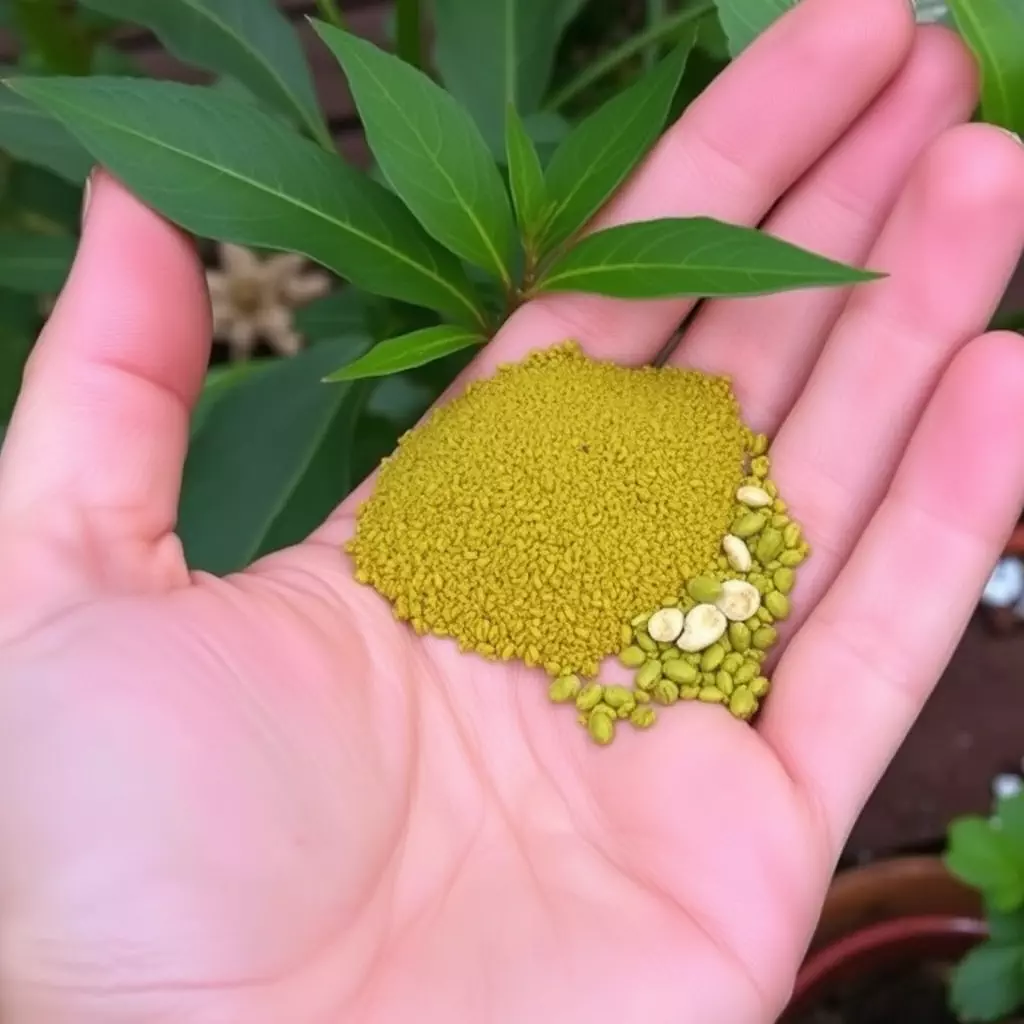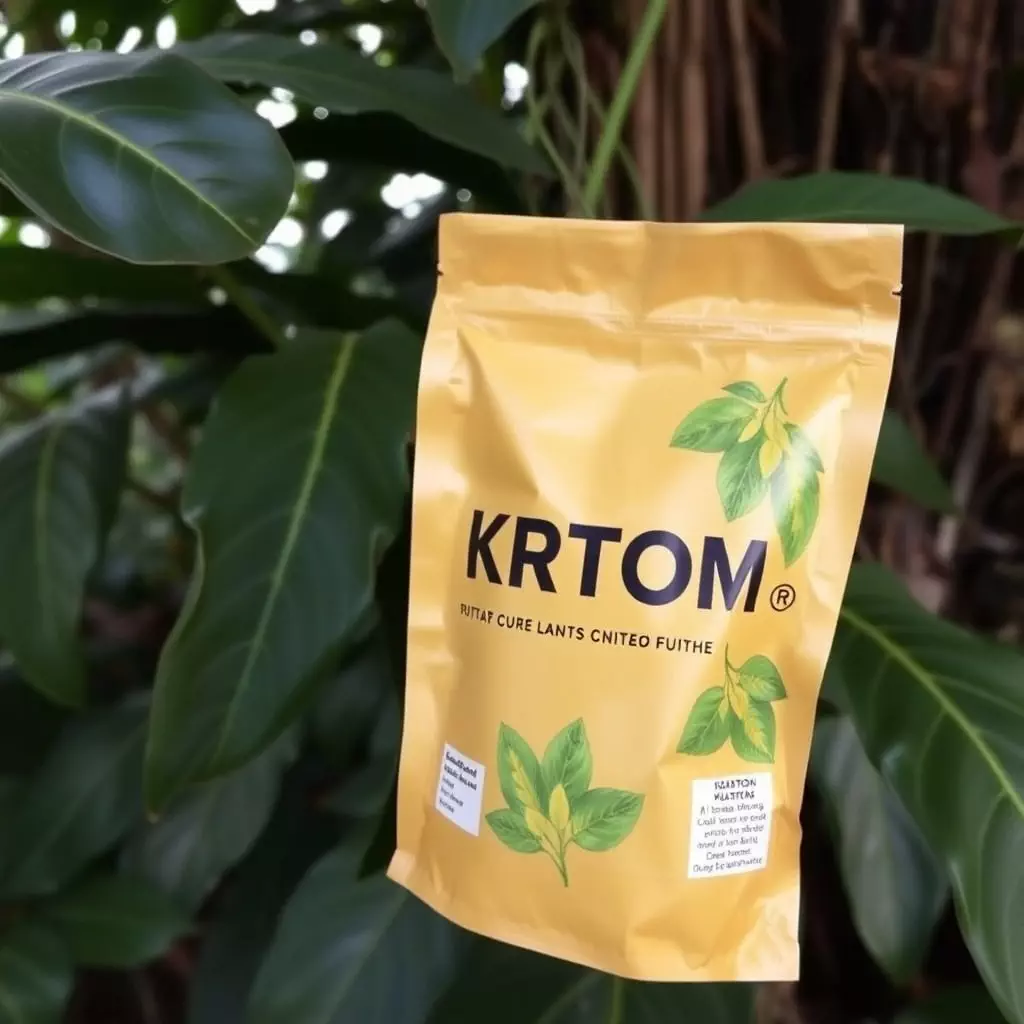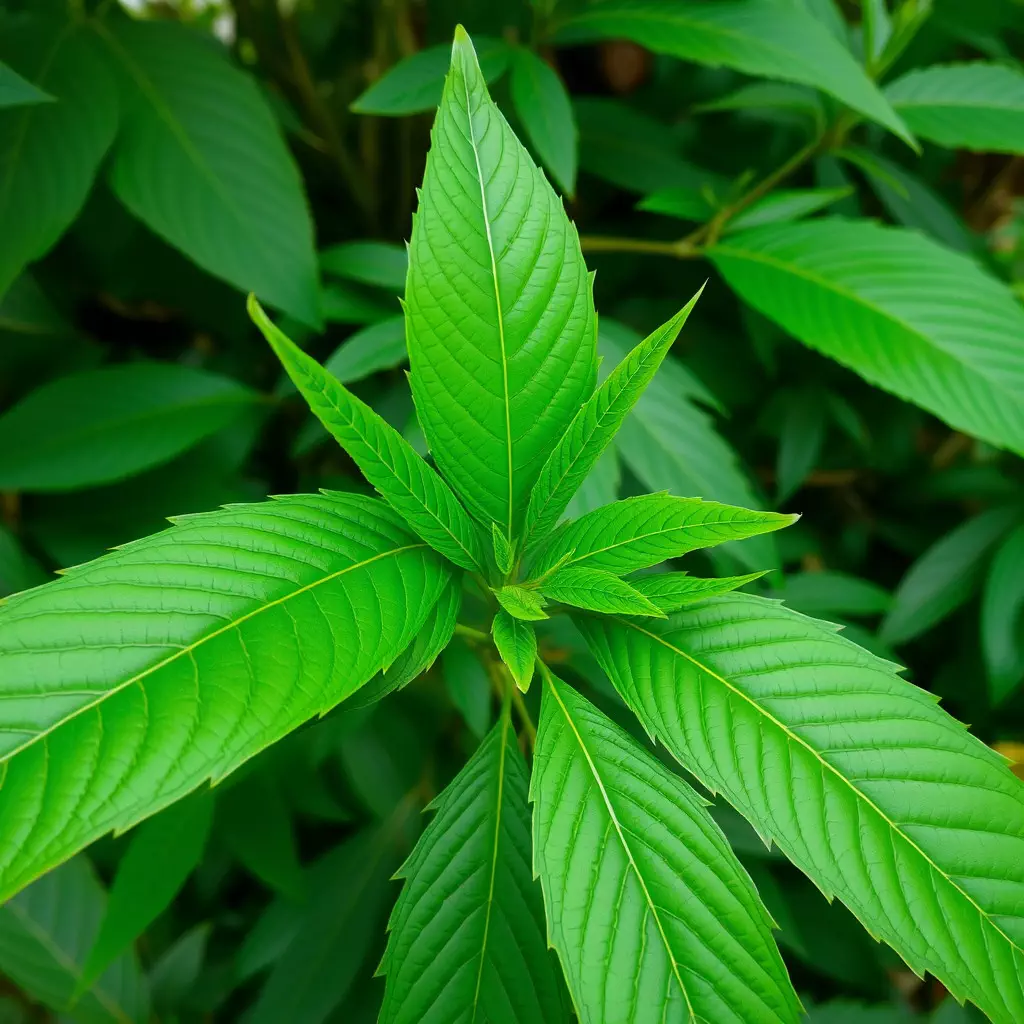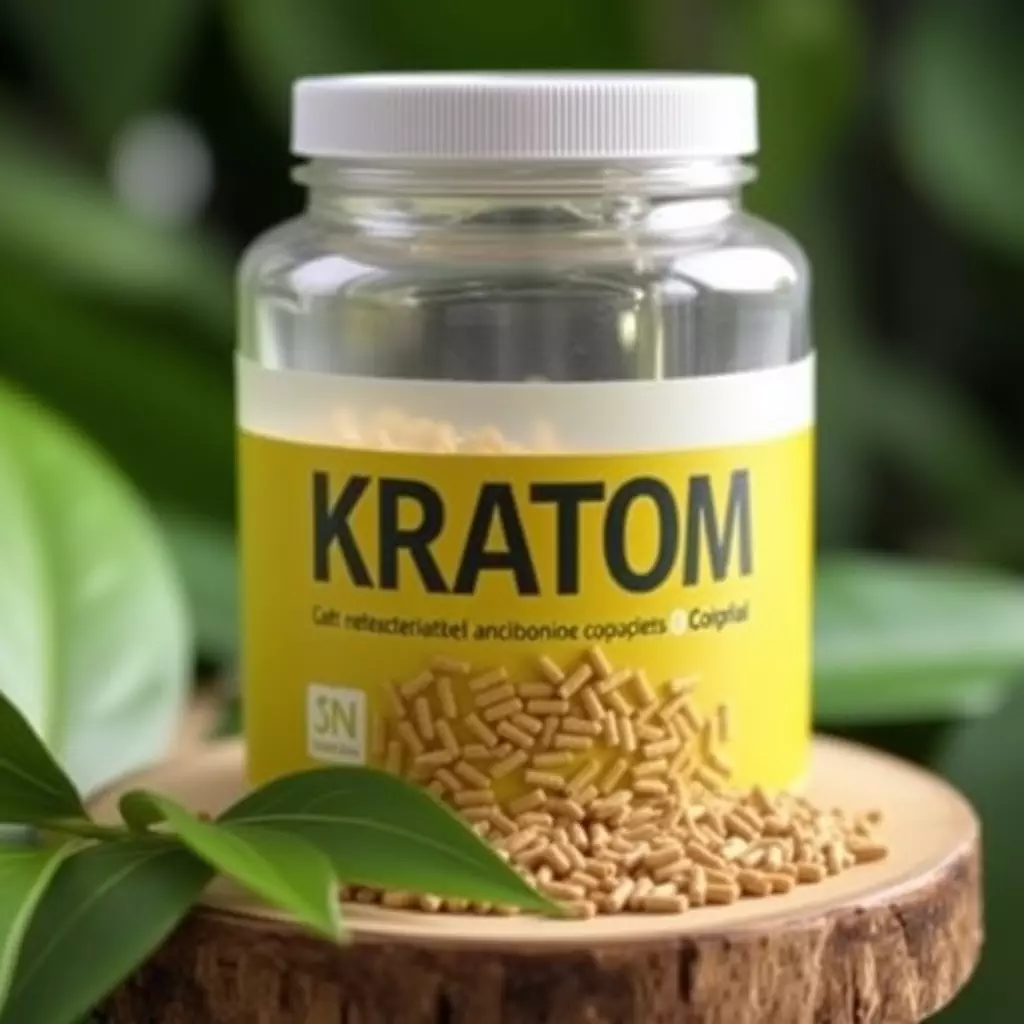Kratom and THC are both natural substances that can impact emotional wellness differently. Kratom, from the Mitragyna speciosa tree, provides mood enhancement and energy regulation without a psychoactive 'high,' which is beneficial for stress relief and focus. It's non-intoxicating nature makes it a potential alternative for those seeking to manage anxiety and depression. In contrast, THC, cannabis' primary psychoactive component, interacts with the endocannabinoid system and can alleviate anxiety and depression but may also cause altered perception or increased anxiety at higher doses. Both substances should be used with caution, considering personal tolerance and legal status, and it's advisable to consult healthcare professionals for safe and effective usage. The distinct effects of Kratom versus THC highlight the importance of a tailored approach to emotional health, as each substance offers unique benefits and potential risks. Users should approach their consumption responsibly, keeping in mind individual differences in response, dosage, and the evolving understanding of both substances' mental health implications.
Emotional wellness is a multifaceted concept encompassing various practices that support psychological resilience and overall health. In the realm of natural remedies, two substances have garnered significant attention for their potential emotional regulatory effects: Kratom and THC. This article delves into the distinct impact each substance has on mood and stress, offering a comparative analysis that could inform personal wellness strategies. We’ll explore how Kratom can influence emotional balance and its role in managing stress, as well as the psychological consequences of THC consumption on mood and emotional health. By examining the effects of Kratom versus THC, readers can better understand which option aligns with their individual needs for emotional wellness.
- Balancing Mind and Body: Exploring Emotional Wellness Through Kratom vs THC Effects
- Understanding the Role of Kratom in Emotional Regulation and Stress Management
- The Psychological Impact of THC on Mood and Emotional Health: A Comparative Analysis with Kratom
Balancing Mind and Body: Exploring Emotional Wellness Through Kratom vs THC Effects

Engaging in emotional wellness practices often involves a holistic approach that balances both mental and physical health. Among the various strategies available, the use of natural substances like Kratom and THC has garnered attention for their distinct effects on emotional well-being. Kratom, derived from the Mitragyna speciosa tree, is known for its stimulating and relaxing properties, which can influence mood and energy levels. Users report that certain strains of Kratom can alleviate stress, enhance focus, and promote a sense of calm without the psychoactive ‘high’ associated with THC. On the other hand, THC, or tetrahydrocannabinol, is the primary psychoactive component of cannabis. It interacts with the body’s endocannabinoid system, potentially offering relief from anxiety and depression. However, it’s crucial to understand that while both substances can have beneficial effects on emotional health, their use should be approached with caution and informed by personal tolerance and legal considerations. Individuals seeking to explore Kratom vs THC effects for emotional wellness must prioritize responsible usage and may benefit from consulting healthcare professionals to navigate these options safely and effectively. Understanding the nuanced differences between Kratom and THC, and how they can influence one’s emotional state, is key to making an informed decision about which might be more suitable for one’s individual wellness journey.
Understanding the Role of Kratom in Emotional Regulation and Stress Management

Kratom, a mitragynine-speciosa leaf extract, has garnered attention in discussions surrounding emotional regulation and stress management due to its distinct pharmacological effects. Unlike THC, the primary psychoactive component of cannabis, kratom interacts with the brain’s opioid receptors, offering a unique profile that can influence mood and pain perception. The alkaloids present in kratom, particularly mitragynine and 7-hydroxymitragynine, are thought to contribute to its anxiolytic and analgesic properties, which can be beneficial for individuals seeking alternatives to traditional pharmaceuticals for managing stress and emotional discomfort. Research suggests that kratom may help in modulating mood, reducing symptoms of anxiety and depression, and providing a sense of well-being. Users often report a stimulating effect at lower doses and sedative effects at higher doses, which can aid in coping with both acute and chronic stress. However, it is crucial to approach the use of kratom with caution, as it can have side effects and may interact with other substances, necessitating careful consideration and potentially medical guidance before incorporating it into a wellness regimen.
When comparing kratom’s effects to those of THC, it’s evident that the two substances have different impacts on emotional regulation. THC’s psychoactive effects can lead to altered perception, euphoria, and in some cases, anxiety or paranoia, which might not be conducive to stress management. In contrast, kratom’s influence tends to be more subtle and focused on mood enhancement without the impairment associated with THC consumption. This distinction makes kratom a potential candidate for those seeking a more grounded approach to emotional balance without the cognitive alterations that THC can induce. Nonetheless, both substances should be used responsibly and within legal boundaries, as their regulatory status varies by region and ongoing research continues to uncover more about their effects on mental health and well-being.
The Psychological Impact of THC on Mood and Emotional Health: A Comparative Analysis with Kratom

Research into the psychological impact of both THC and Kratom has yielded varied findings, offering a nuanced understanding of their respective effects on mood and emotional health. THC, the primary psychoactive component in cannabis, has been associated with a range of mood modifications, including euphoria, relaxation, and in some cases, anxiety or paranoia. Its influence on emotion is complex and can be highly subjective, varying depending on dosage, individual predisposition, and setting. Users often report a lifted mood and reduced inhibitions, which can enhance sociability and creative thinking. Conversely, adverse effects such as heightened anxiety or fear can occur, particularly at higher doses or for inexperienced users.
Kratom, derived from the Mitragyna speciosa tree, offers a different spectrum of emotional wellness effects. Its alkaloids, mitragynine and 7-hydroxymitragynine, interact with opioid receptors in the brain, leading to a spectrum of effects that range from mild stimulation to sedation. At lower doses, Kratom is often reported to uplift mood, provide a sense of well-being, and alleviate symptoms of depression and anxiety without the intoxicating effects associated with THC. Higher doses can induce sedation, pain relief, and anxiolytic effects, making it a potential alternative for individuals seeking relief from chronic pain or stress without the psychoactive properties of THC. The comparative analysis of THC vs THC effects highlights the importance of considering individual differences and the context in which these substances are used when assessing their impact on emotional wellness. Users should approach both with caution, adhering to recommended guidelines and dosages to mitigate potential risks to their mental health.
In conclusion, emotional wellness is a multifaceted pursuit that can be significantly influenced by our choice of substances and the ways in which we engage with them. The article has examined the distinct effects of Kratom and THC on emotional regulation and stress management, offering insights into how these substances can be integrated as strategies for enhancing overall emotional wellness. While both compounds have their roles in modulating mood and managing stress, it is clear that individuals must carefully consider their personal circumstances, health status, and the legal regulations governing their use before incorporating Kratom or THC into their wellness routines. A nuanced understanding of Kratom vs THC effects is crucial for making informed decisions that align with one’s emotional health goals. As research continues to evolve, it is essential to stay informed on the latest findings and to approach these substances with a balanced perspective, ensuring that they serve as constructive tools rather than coping mechanisms. Emotional wellness is not a one-size-fits-all endeavor; it requires individualized approaches tailored to unique life experiences and needs.






